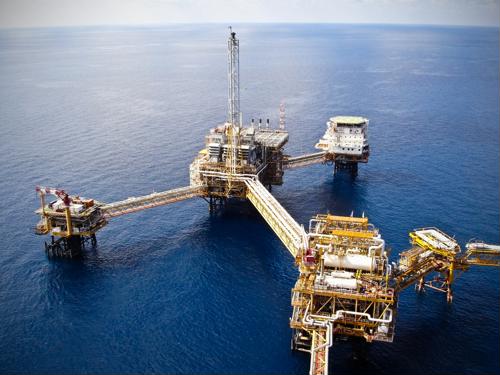
How smart technology is refining the oil industry
By Max BurkhalterDecember 5, 2021
The oil and gas business has long been one of the world's most valuable industries. The process, however, is also one of the most dangerous.
If operators aren't careful, offshore drilling has the potential to irreparably damage the planet, its wildlife and the workers aboard the rig. Thanks to the internet of things (IoT), oil drilling is a safer, vigilant and efficient process.
As oil and gas companies digitize, their work is leaving a much smaller impact on the environment and a much greater one on productivity. Here's how IoT systems are reshaping the oil business for the better.
Drilling management
At the heart of the offshore extraction process is the drill. Operators rely on enormous underwater machinery to dig below the ocean floor, where rock formations contain vast amounts of petroleum. This is a delicate process where even the slightest miscalculation could cause catastrophic damage.
With IoT devices, operators can complete those vital operations with far less difficulty. Better yet, they're also performing much faster. Some IoT-enabled technologies, according to Axora, can expedite well-drilling time by 50%. Through rapid data collection, insights become actionable much quicker than traditional drilling techniques.
24/7 monitoring
From the drill to the refinery to the pipeline, every step of the process requires constant surveillance. Historically, however, data collection has been limited for operators. After all, there's no internet on the ocean.
IoT-supported sensory monitoring systems are mitigating this pain point. Using Low-Powered Wide Area Network (LPWAN), operators can connect many more monitoring points around the entire rig. IoT sensors collect information 24/7 so that operators can take appropriate action in a moment's notice.

Hazard management and safety
Indeed, digitized solutions are leaving their mark on employee safety. Per Forbes, the fatality rate among oil workers is steadily decreasing with IoT leading the charge. Smart sensors are helping operators prepare for, identify and manage risk at every turn.
IoT devices check round the clock for flammable gas and other toxic vapor leaks. When a threat is accurately identified, the operation is promptly alerted with enough time to safeguard against the danger. Oil rigs, as a result, are protecting their business, their rig and their employees altogether.
Eco-friendly operation
As an industry whose processes are the cause of carbon emission, operators are rightfully concerned with reducing their footprint. Now that IoT devices are enabling 24/7 operational surveillance, organizations are much more effective at achieving that goal.
Data collection around the rig informs operators of their performance with real-time analytics. They know exactly how their rig is performing at any given moment. In turn, they can optimize energy consumption and cut down on their emissions.
Likewise, IoT sensors equipped with artificial intelligence may predict asset failures before they happen. Predictive analytics uses data to recognize patterns, trends and anomalies. Irreversible damages like oil spills, for example, can be prevented when operators have the proper insight ahead of time.
To learn more about how Perle can support IoT in the oil industry, check out our customer success stories.



